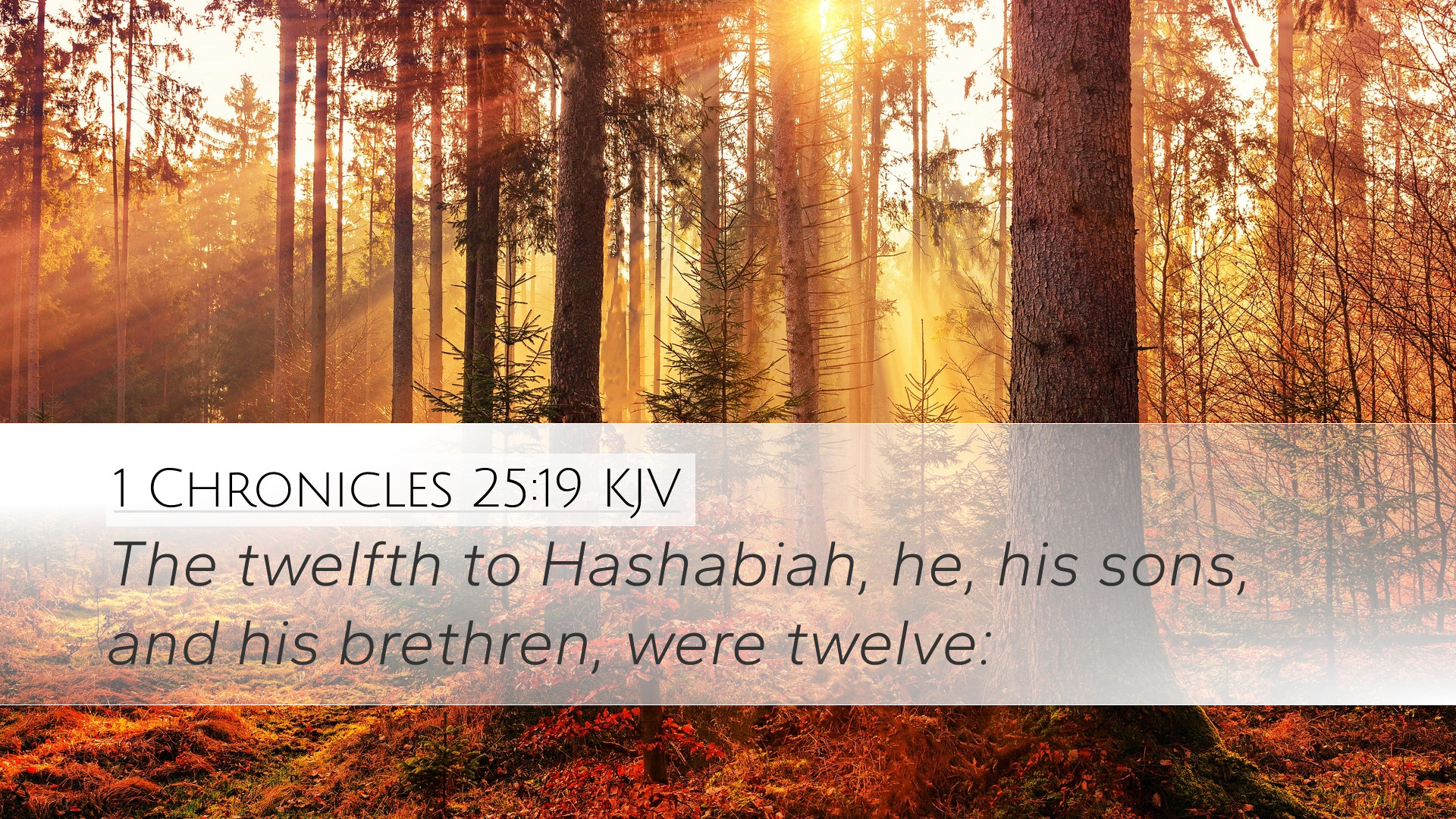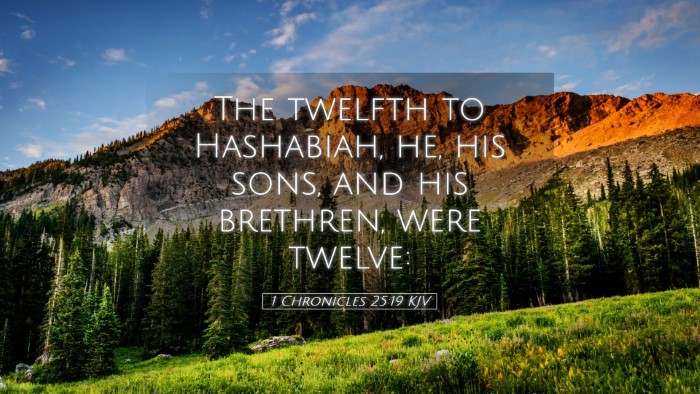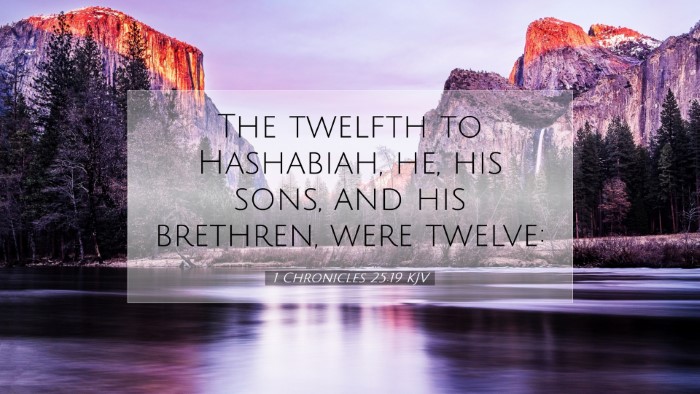Commentary on 1 Chronicles 25:19
This verse, placed within the context of the organization of the Levitical musicians, showcases the divine order in worship and the importance of a structured community in service to God. In 1 Chronicles 25:19, we find a genealogical record pertaining to the Levites who were appointed for the service of song within the house of the Lord.
Verse Context
The chapter focuses on the division of services among the Levites, specifically in relation to music and worship. The mention of the sons of Asaph, Heman, and Jeduthun indicates a deliberate plan instituted by David for the ministry of music.
Insights from Commentaries
Matthew Henry's Commentary
Matthew Henry emphasizes the significance of David's organization of the worship services, noting that it reflects the importance of music in biblical worship. He points out that the singers' appointment was not haphazard but divinely ordained as part of the holy service. Henry writes:
"The office was designed to be maintained by a succession of families from generation to generation, indicating that the service of song was vital for the continuity of worship and community life."
Furthermore, he highlights that the musicians, like all ministers, are called to be 'appointed' and 'skilled', which speaks to the need for preparation and dedication in service to God.
Albert Barnes' Commentary
Albert Barnes comments on the nature of the division of labor among the Levites, observing that it reflects God's order. He notes:
"The arrangement for the singers shows a deep concern for the integrity and quality of worship, underscoring that worship is not merely a spontaneous act but requires structure and skill."
Barnes expands on the qualifications of those chosen for the musical duties, relating these to the spiritual qualifications that God requires in all His servants. He cites the necessity of their 'prophetic' role, which implies that through their songs, they were to convey messages of faith and encouragement to the people.
Adam Clarke's Commentary
Adam Clarke provides detailed insights into the families named in the verse and their historical significance. He elucidates that:
"The musicians belonged to three primary choirs, each with distinct roles, yet all serving the same purpose of enhancing the worship experience in the temple."
Clarke also elaborates on the diversity of their musical talents and instruments, suggesting that this variety enriched the worship experience and exemplified the beauty of God’s creation being utilized for His glory. He posits that:
"This diversity among the singers allowed for a profound expression of praise and worship, tapping into the creative gifts bestowed upon them by God."
Theological Implications
This verse illustrates broader theological themes such as the concept of divine order in worship, the value of community involvement in service, and the importance of skilled service in the worship of God. Each commentator reiterates the need for proper preparation, selection, and execution of worship practices, hinting that God seeks engagement that is both heartfelt and skillful.
Application for Today
- Importance of Structure in Worship: Modern church leaders may reflect on the need for structured roles within their own worship services, recognizing that chaos is not conducive to an environment of reverence and awe.
- Skill and Dedication: Just as the Levitical singers possessed specific skills, today's worship leaders should strive for excellence and creativity in their roles, ensuring that they cultivate their talents for God's glory.
- Community Involvement: Every member of the community has a part to play in the body of Christ, and churches might seek to involve diverse talents, echoing the Levitical setup where various families were called for distinguished roles.
Conclusion
1 Chronicles 25:19 serves as a reminder of God’s intention for orderly worship marked by the diverse expressions of His people. The insights from scholarly commentaries provide a rich tapestry of understanding that can enhance worship practices today. For pastors, students, and theologians, this passage invites deeper reflection on how best to honor God through structured worship embodying skill and community participation.


